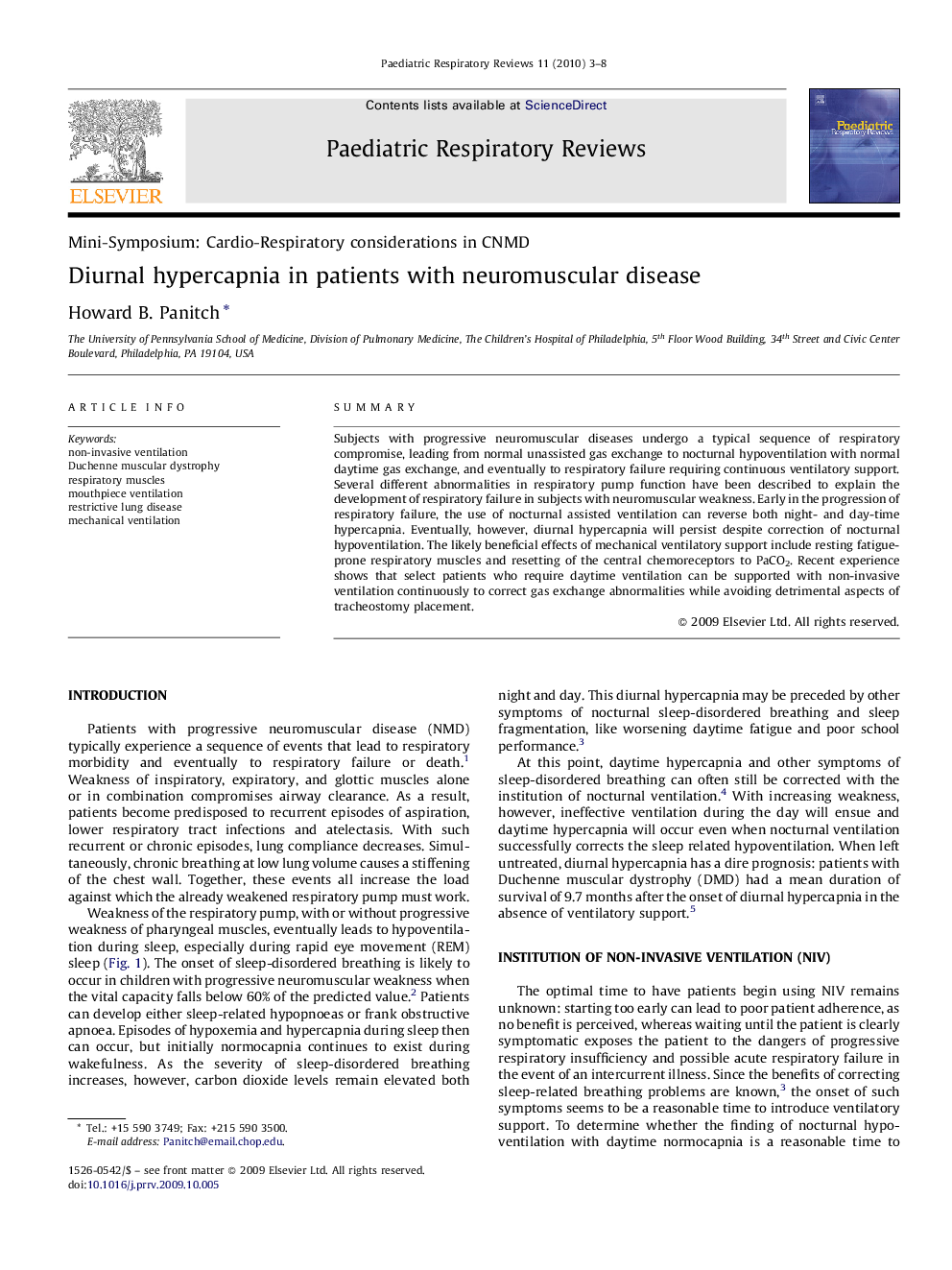| Article ID | Journal | Published Year | Pages | File Type |
|---|---|---|---|---|
| 4171407 | Paediatric Respiratory Reviews | 2010 | 6 Pages |
SummarySubjects with progressive neuromuscular diseases undergo a typical sequence of respiratory compromise, leading from normal unassisted gas exchange to nocturnal hypoventilation with normal daytime gas exchange, and eventually to respiratory failure requiring continuous ventilatory support. Several different abnormalities in respiratory pump function have been described to explain the development of respiratory failure in subjects with neuromuscular weakness. Early in the progression of respiratory failure, the use of nocturnal assisted ventilation can reverse both night- and day-time hypercapnia. Eventually, however, diurnal hypercapnia will persist despite correction of nocturnal hypoventilation. The likely beneficial effects of mechanical ventilatory support include resting fatigue-prone respiratory muscles and resetting of the central chemoreceptors to PaCO2. Recent experience shows that select patients who require daytime ventilation can be supported with non-invasive ventilation continuously to correct gas exchange abnormalities while avoiding detrimental aspects of tracheostomy placement.
